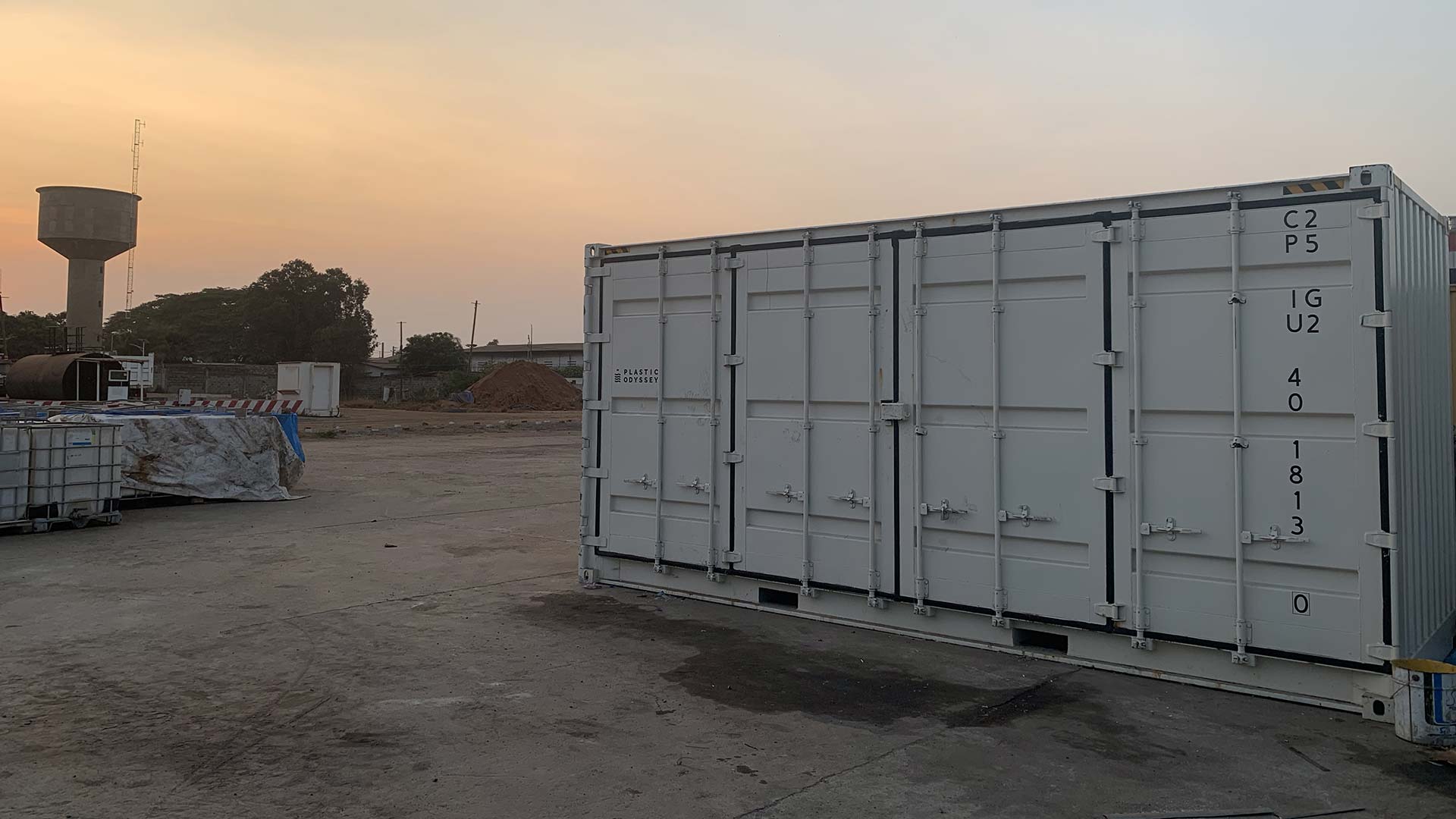
Local Factories: The second turnkey recycling micro-factory is installed in Lome, Togo
Recovering non-recycled plastic waste
In spring 2022, following our field study in Guinea Conakry, Jérémie Boissinot, then director of Miawodo, one of the programs led by Entrepreneurs du Monde, contacted us.
After discussions, we began to develop a collaborative project around the valorization of certain types of plastic waste, particularly flexible plastics and films.
The challenge for Miawodo was to find a way to valorize the waste that is not currently recycled in the local context. This was the case for LDPE (Low-Density Polyethylene) plastic films and sachets.
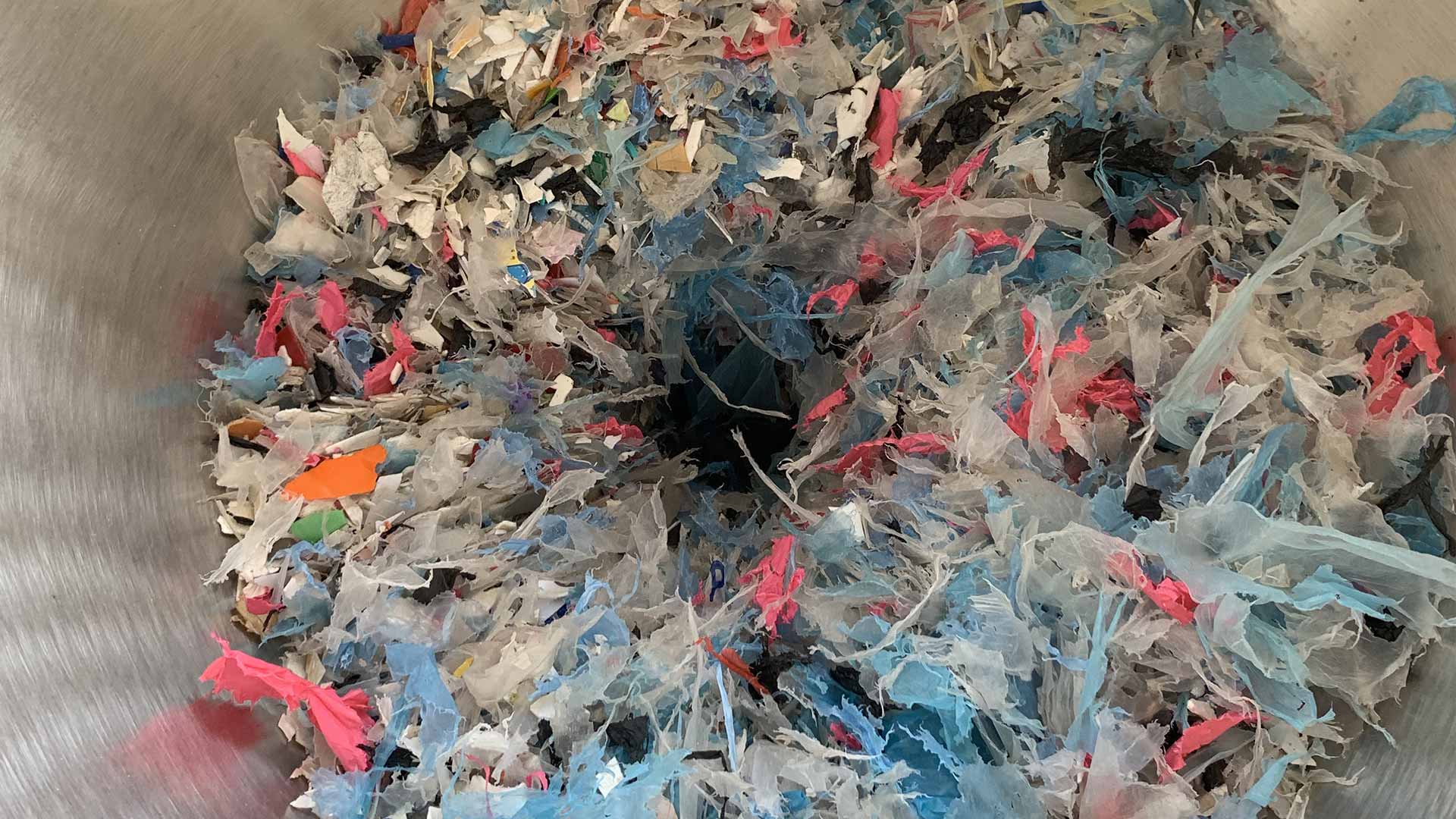
Support for the creation of small businesses and waste management in Togo
The Miawodo program, led by Entrepreneurs du Monde, contributes to the economic development of vulnerable populations in Togo. The project supports the creation and development of micro-enterprises, particularly those with a positive environmental impact.
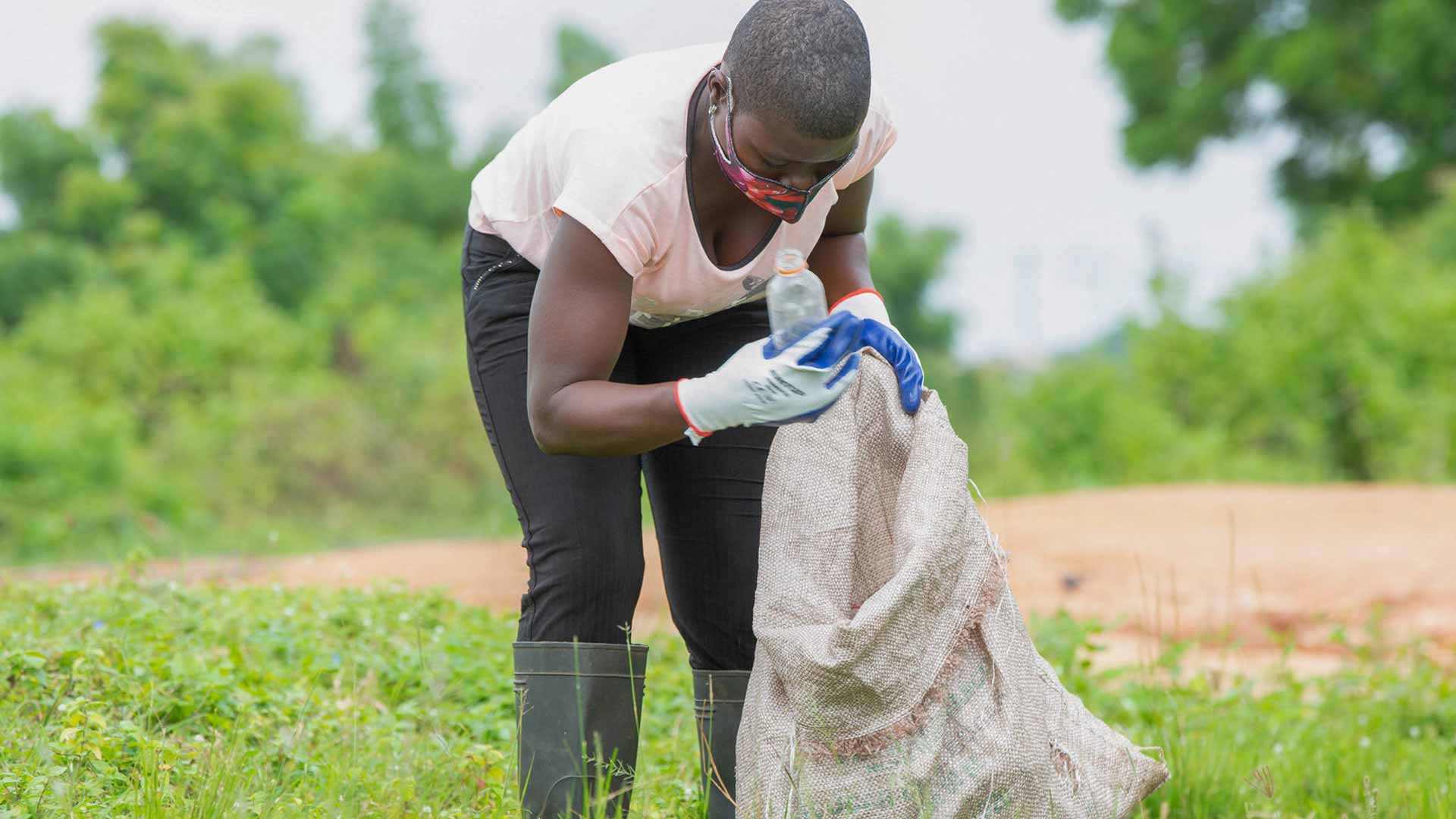
Miawodo is an innovative program as it strengthens the local economy through employment while fighting against pollution. Beneficiaries have the opportunity to develop skills in business management and waste management, which helps them create their own sustainable businesses or specialize in green jobs. The project also contributes to improving the health of local populations by preventing waste from being dumped in the streets or burned in the open air.
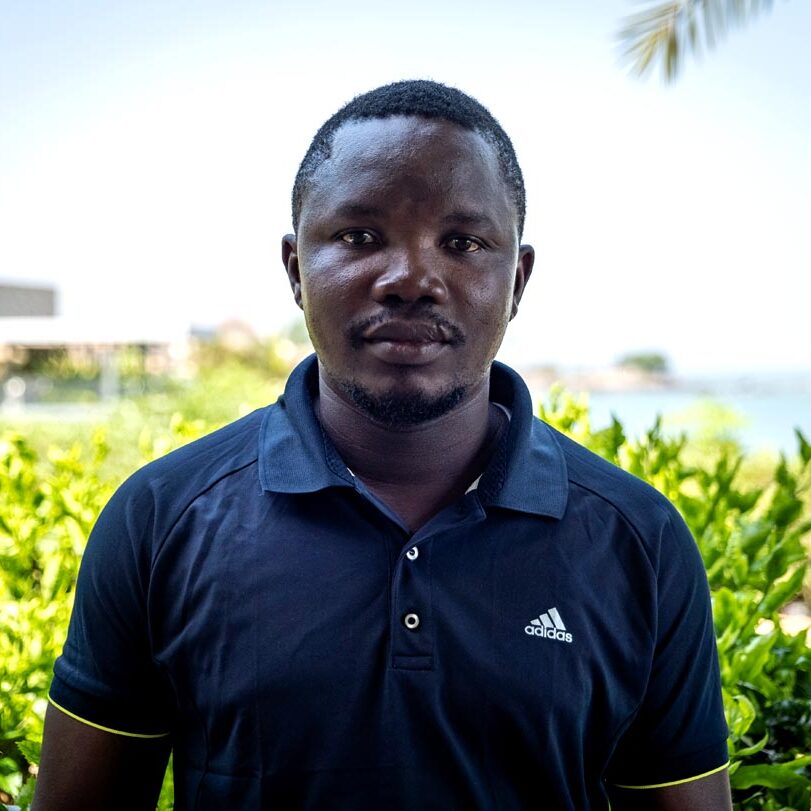
In Togo, Mèm Tchokozi is leading the project. In Togo, Mèm Tchokozi is leading the project. He is responsible for the micro-factory we installed for Miawodo. As part of this program, young people living in disadvantaged neighborhoods in Lome have access to vocational training in waste management. The beneficiaries carry out activities such as collection, sorting, recycling, and upcycling of waste.
Manufacturing and installation of the container
The containerized micro-factory was assembled in October 2022 in our workshop in Marseille. The 20-foot open-side container contains all the necessary equipment for transforming Togolese plastic waste into boards. It will process approximately 120 tons of waste per year, with a production of about 20 boards per hour.
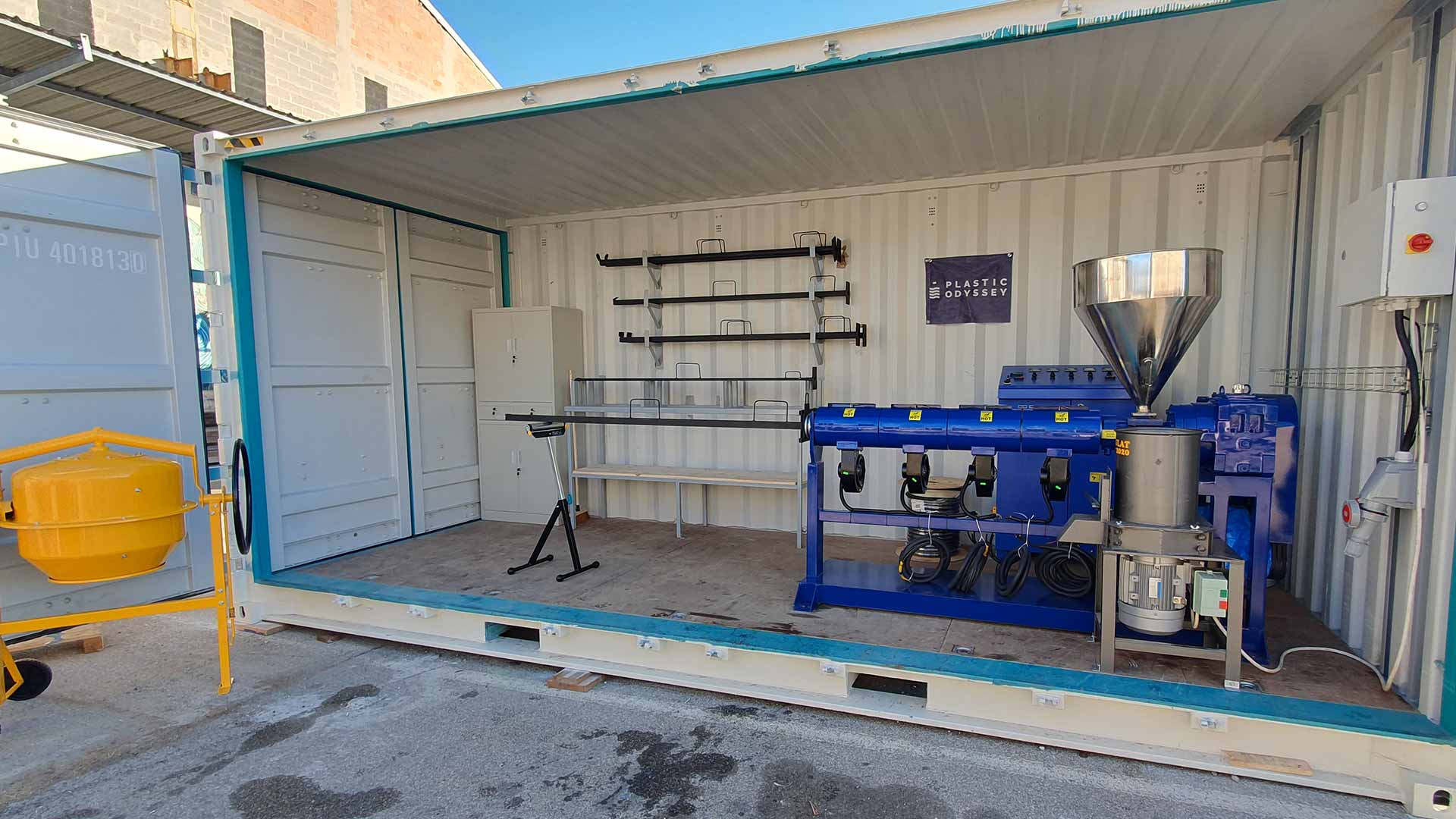
The container left Marseille at the end of October 2022 and arrived in Togo in early December. Once cleared through customs, the container was installed on the Eiffage site near the Grand Port of Lome. A few hours after being unloaded from the truck, the container was operational. However, several days of training were necessary to convey the operational best practices, as well as safety and equipment maintenance instructions to the Miawodo teams.
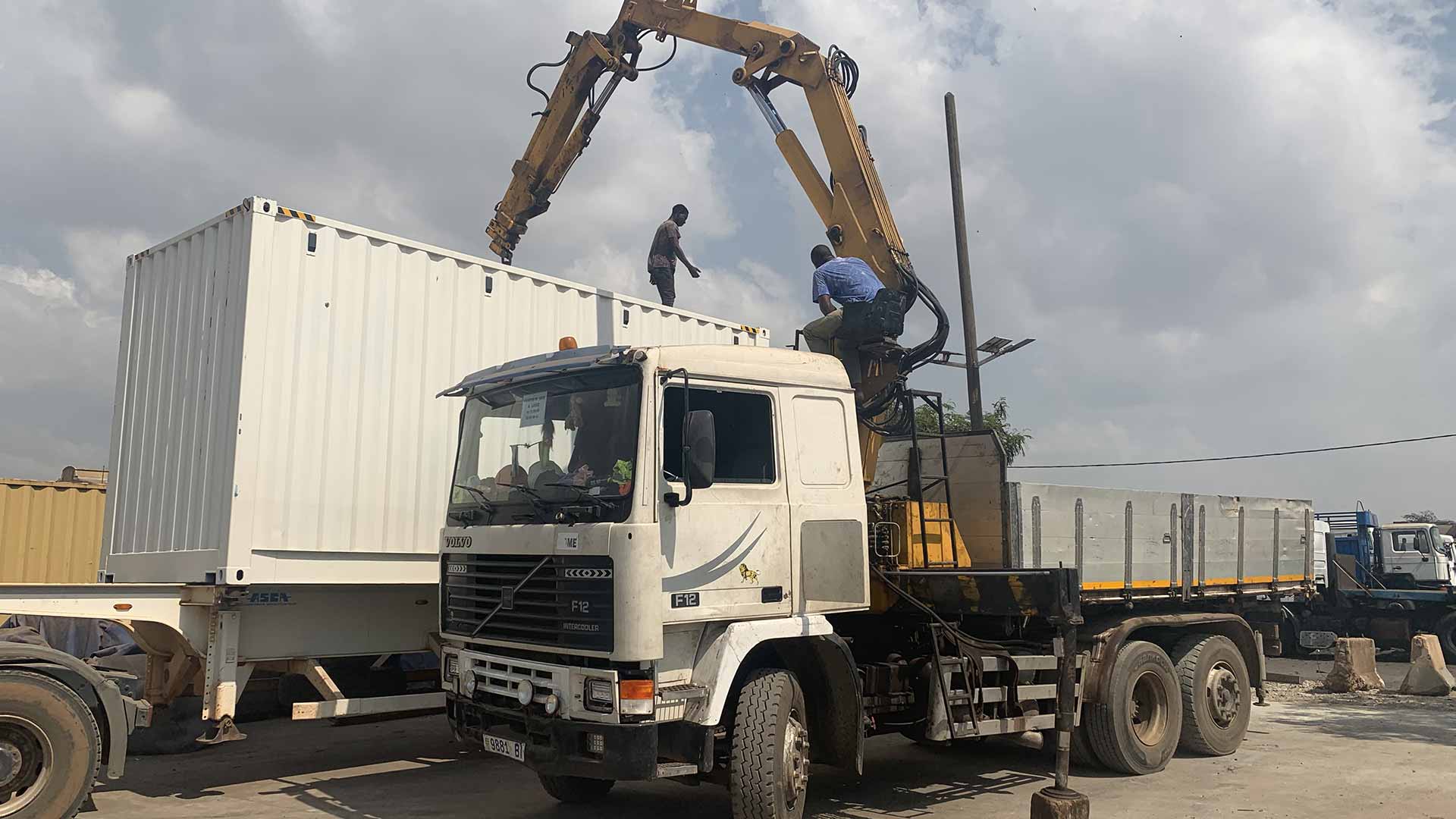
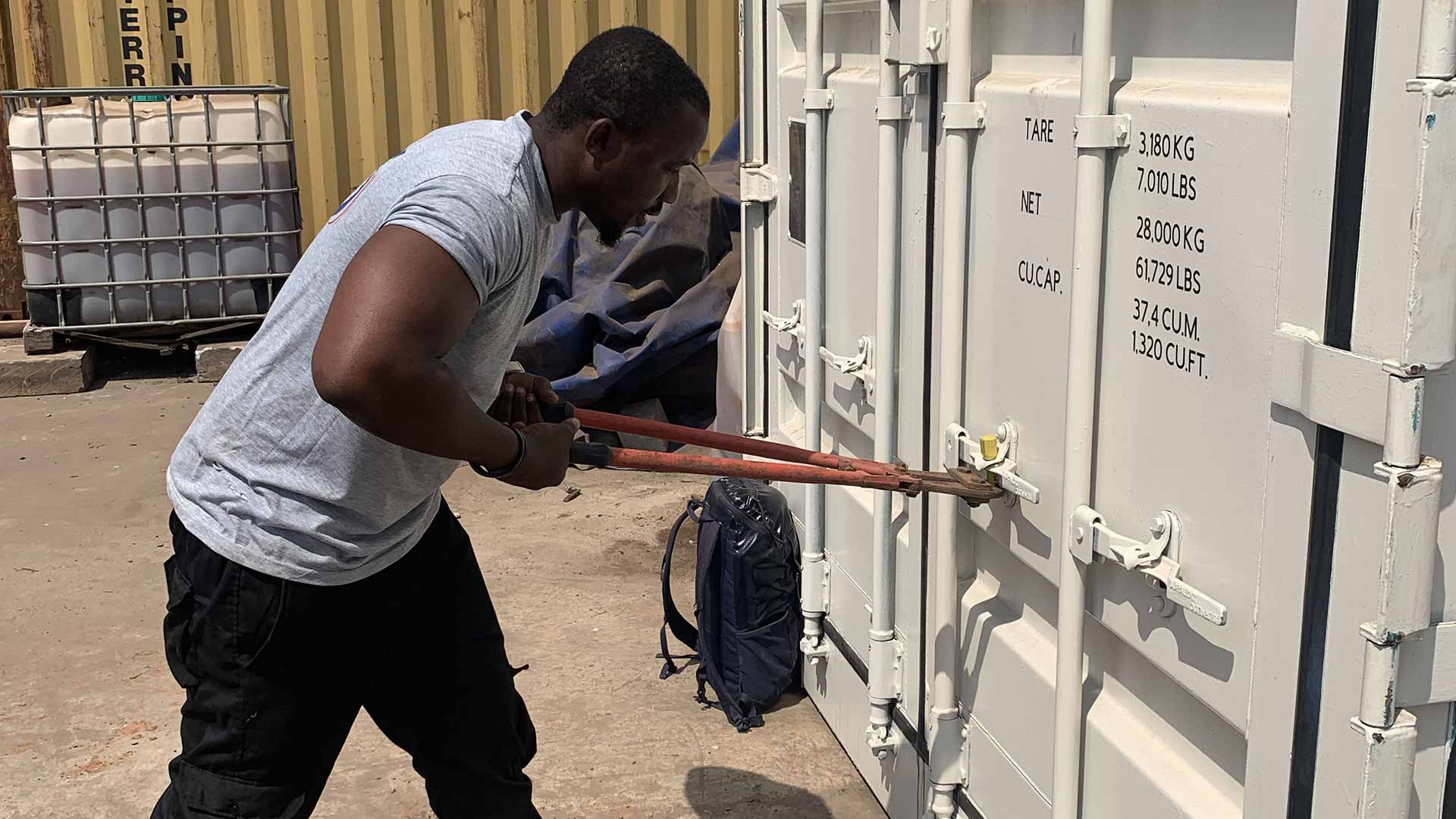
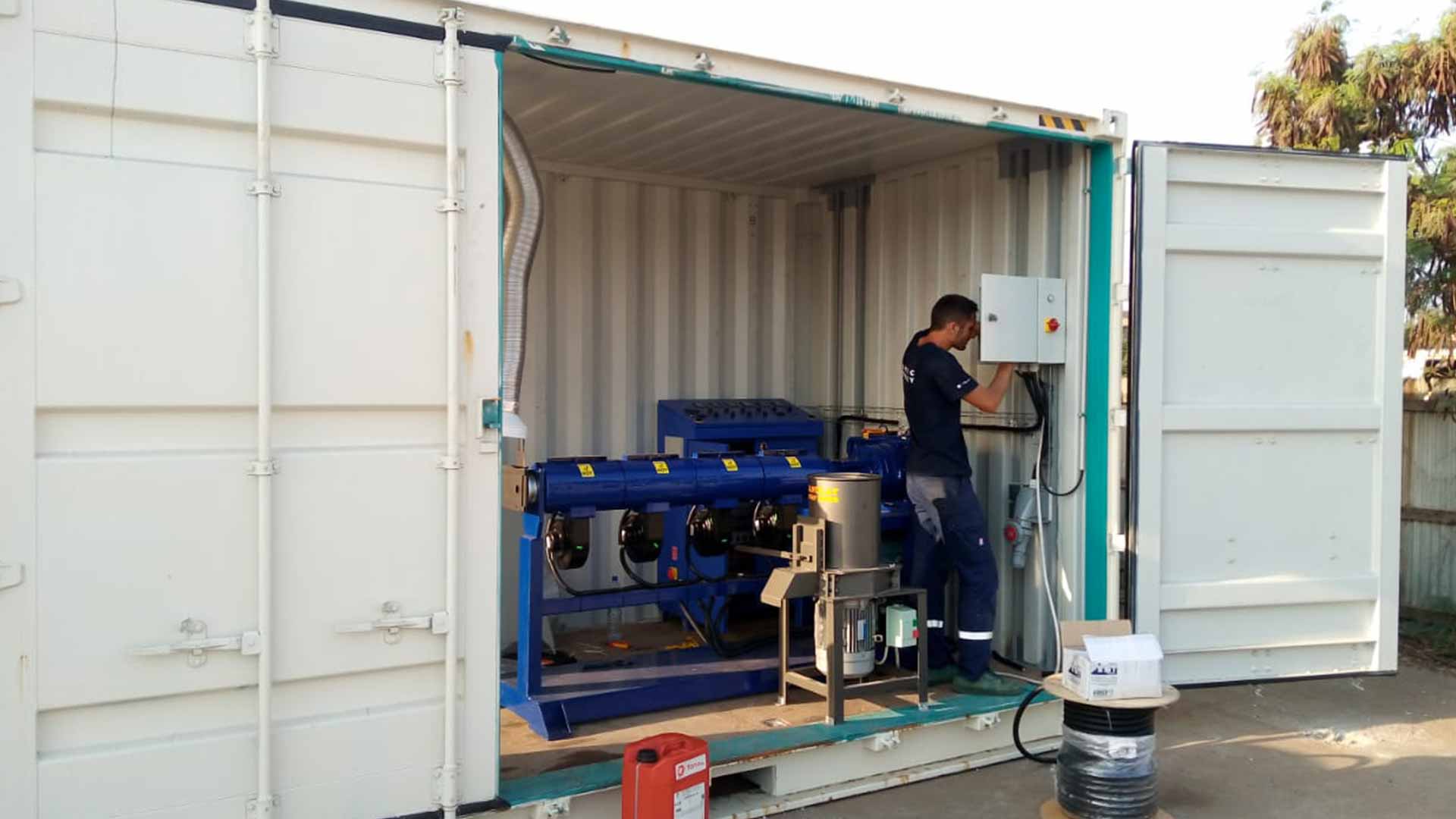
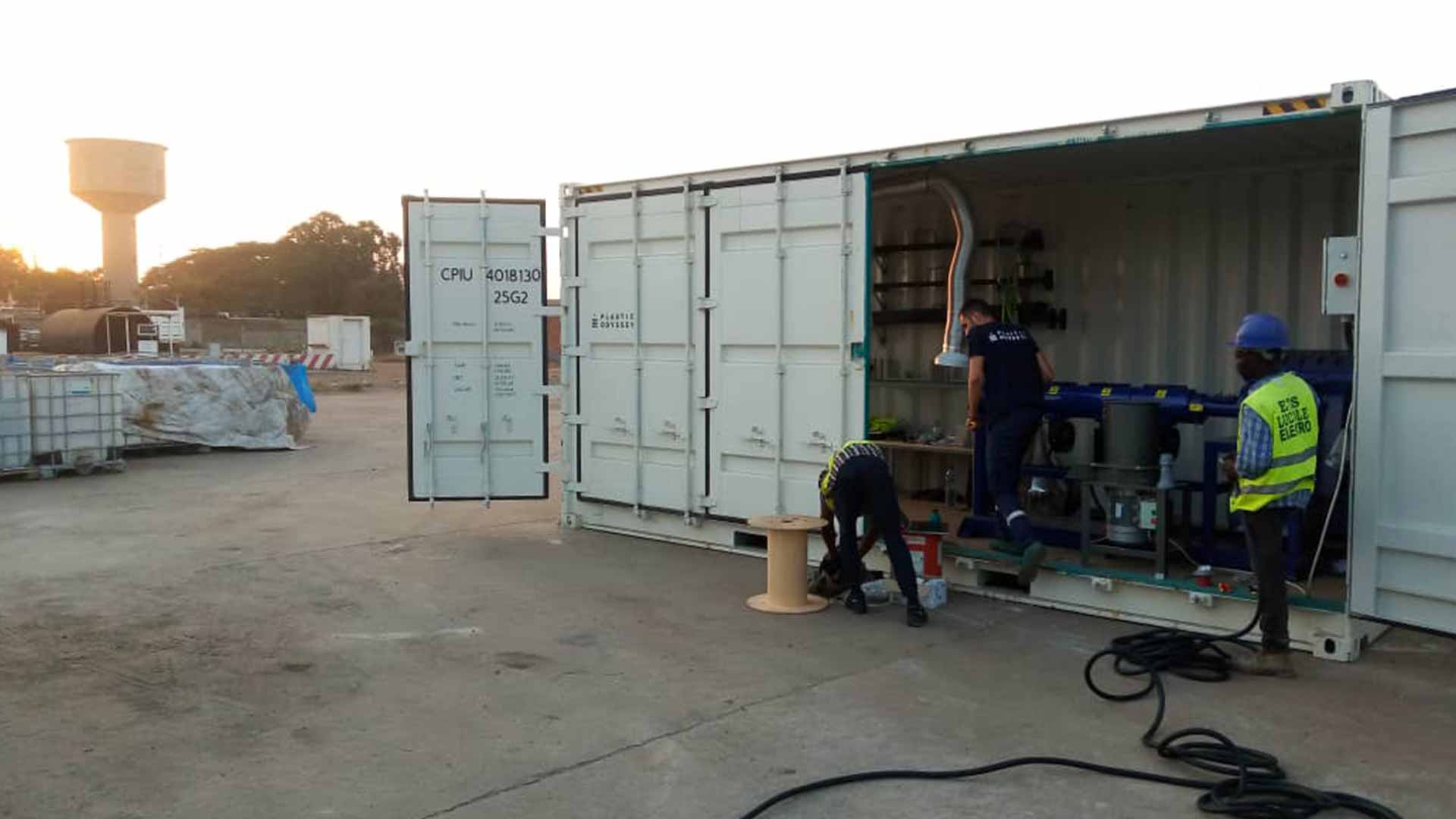
Low-tech Machine Presentation
This containerized micro-factory consists of all the machines and tools necessary to transform Togolese plastic waste into boards. including:
- An agglomerator to reduce plastic films into small pieces. Plastic films can vary in size and shape, so they are agglomerated into uniform-sized pieces. In this form, they can be more easily stored and recycled.
- A plastic-sand mixer to homogenize the mixture of flexible and rigid plastics previously agglomerated or shredded. The proportions are weighed to control the desired mixture, which is then poured into the extruder hopper.
- An extruder to melt the plastic material: extrusion involves gradually heating and mixing plastic flakes until they form a malleable paste, which is then shaped in molds and cooled to create the boards.
- About ten molds to shape the plastic material: made of hollow steel, they can vary in length and section to produce different types of profiles.
Other equipment present in the container is used for the proper functioning of the process, the safety of the operators, and the proper use of the machines. This includes a suction and ventilation system that extracts potential fumes from heating the plastic, a workbench and a storage cabinet for tools and equipment, personal protective equipment (PPE), and all the necessary materials for equipment maintenance.
Commissioning of the recycling micro-factory
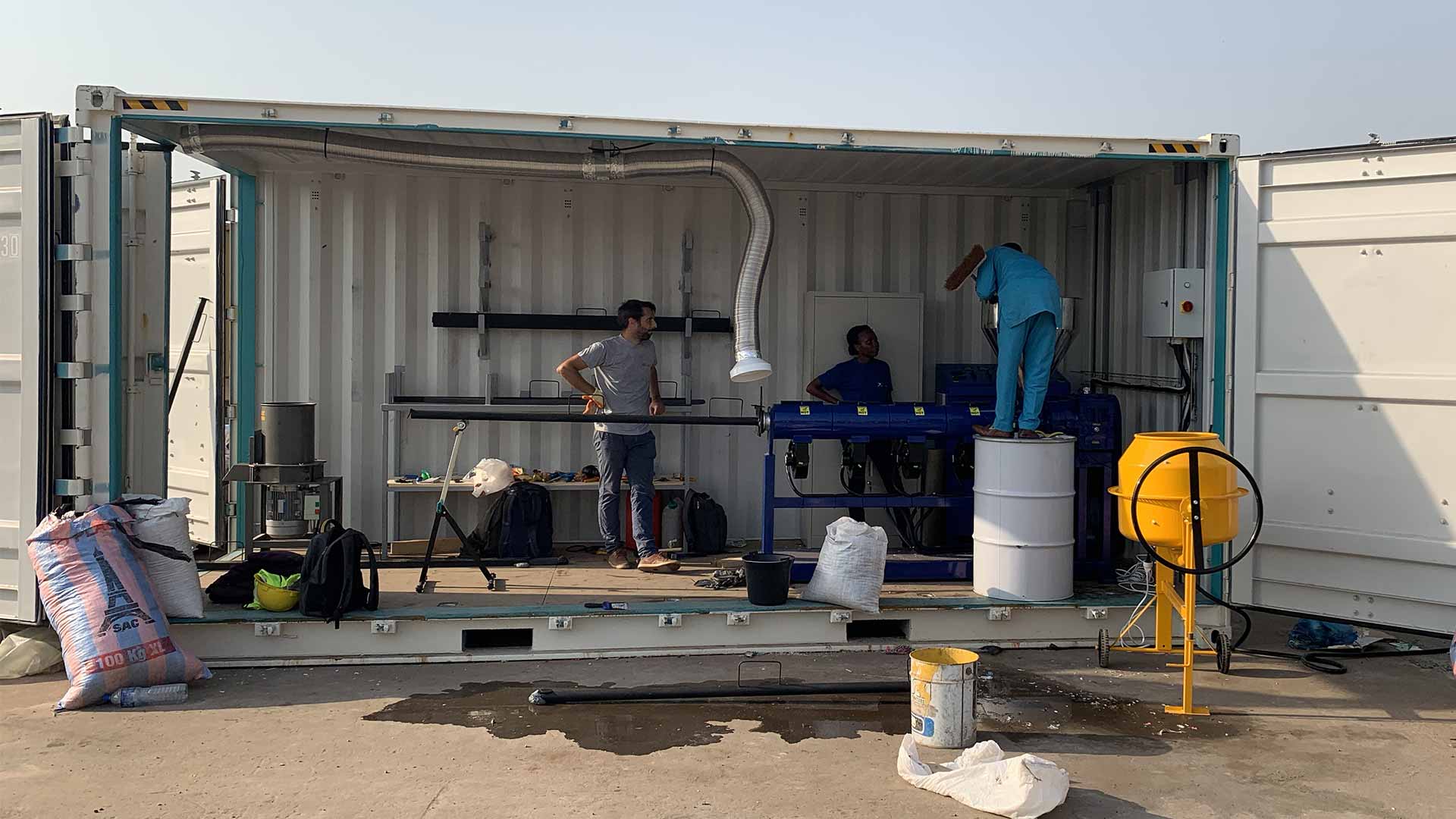
The newly installed micro-factory allows for the production of profiles: the extruder pushes the recycled plastic paste into a perforated form, similar to a spaghetti machine, resulting in round or square bars as well as boards.
Mèm has chosen to produce boards in order to later assemble composters, garbage bins, or furniture. The obtained board is more expensive than a wooden plank, but it has added value when it comes to storing moist materials such as compost or waste.
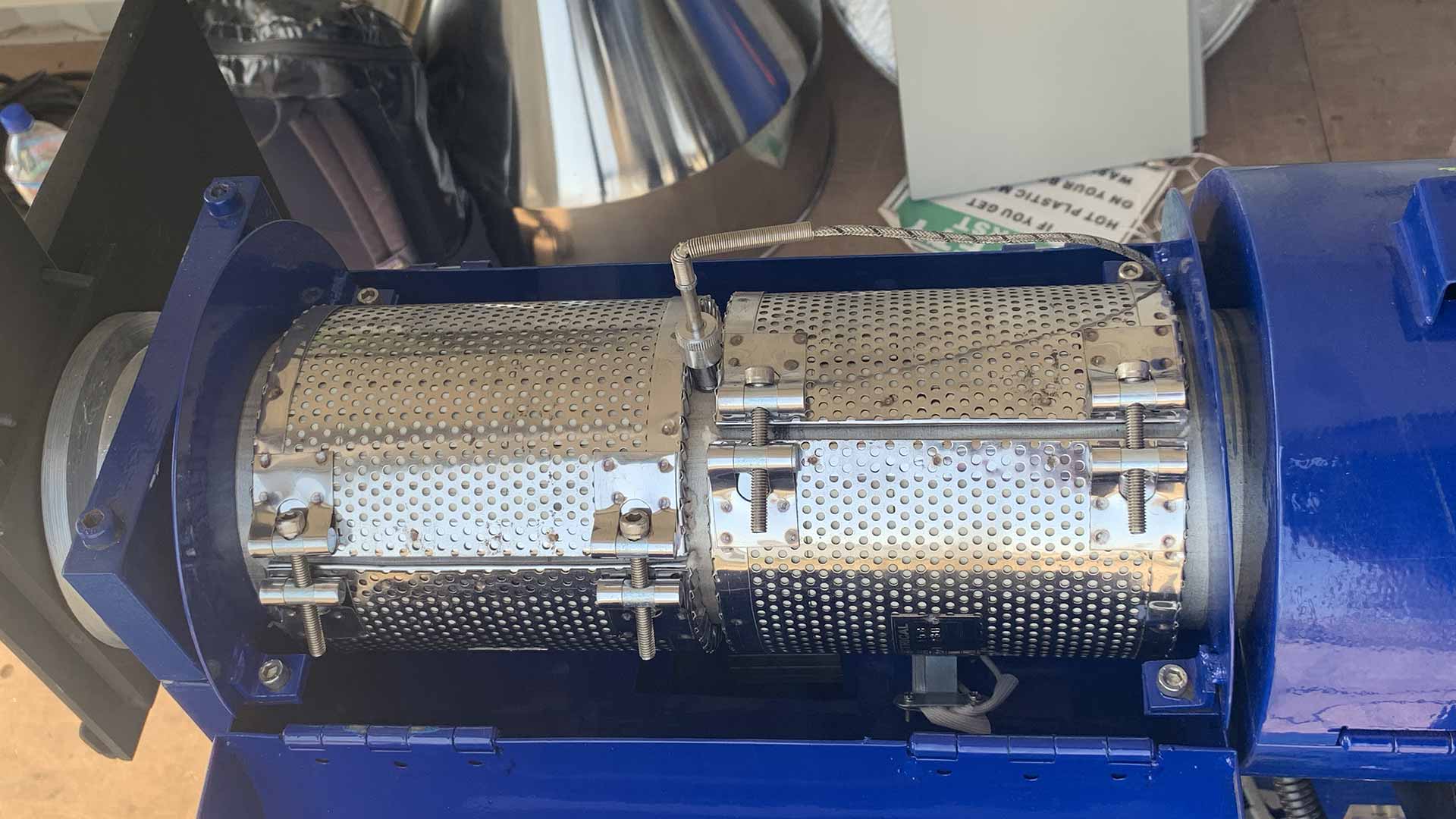
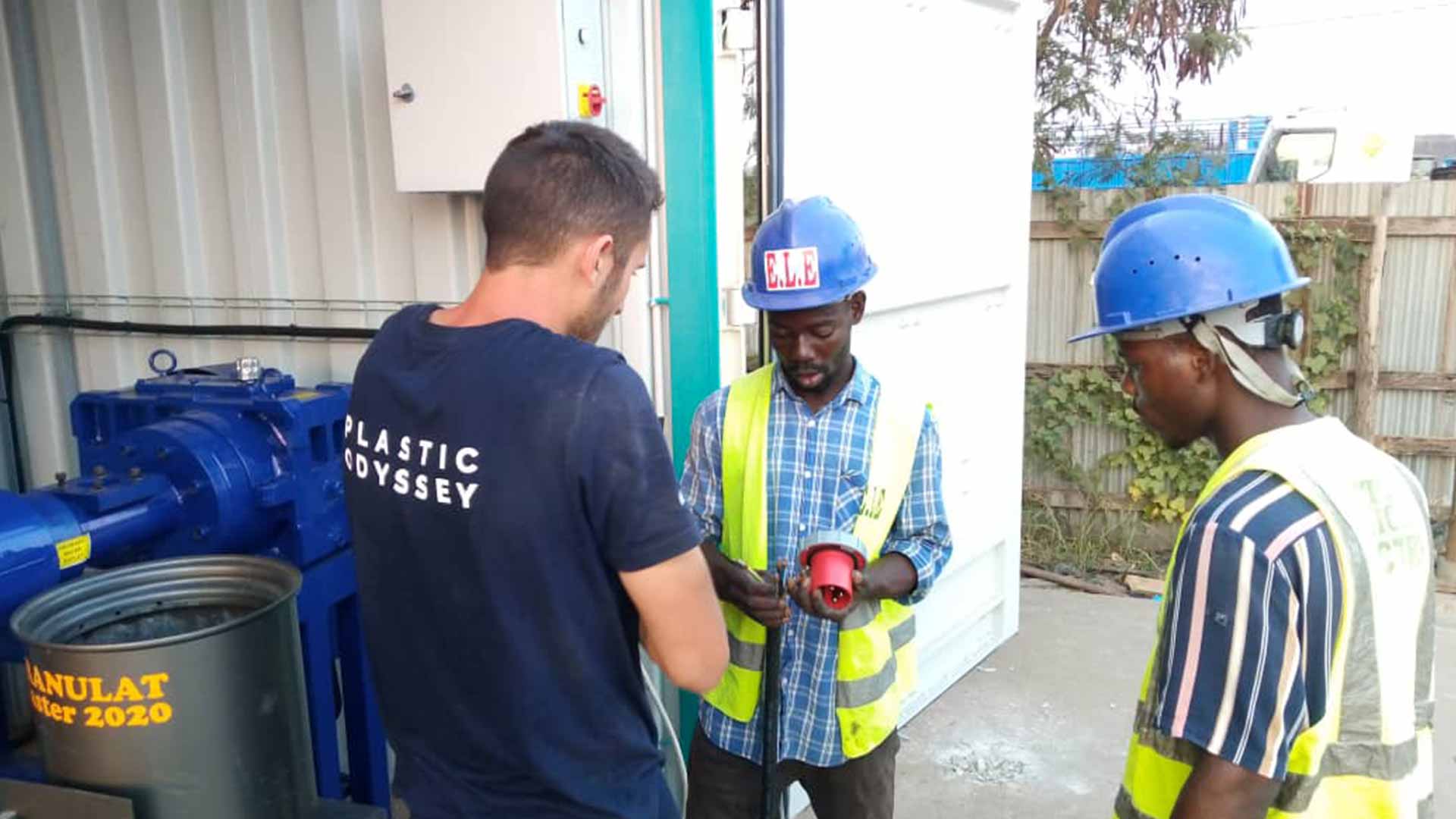
Upon their arrival to support the installation, Tom Bébien and Benoît Blancher received a warm welcome: one of the sailors from Plastic Odyssey, who is also Togolese, had instructed his younger brother to receive the visitors in the best possible way. Therefore, during evenings and weekends, they were able to immerse themselves in the life of a young person in Lome: “The conversations were fluid because we came as friends, there were no business stakes. I felt like I was experiencing something authentic about this country, its youth, and the image they have of the West… It was enriching.” Benoît recounts.
In the micro-factory, Tom helped Mèm develop molds of the right size and conduct various tests to adapt the process to the available types of plastic waste. “We are still fine-tuning the machines we deploy; it’s not a matter of delivering, plugging in, and everything works.” Tom explains. “We support the entrepreneurs until everything runs smoothly.”

The Plastic Odyssey Local Factories are inspired by innovations and systems used on the ground around the world. They bring together, in the form of a container, all the machines necessary for the transformation of waste into new material or object.
